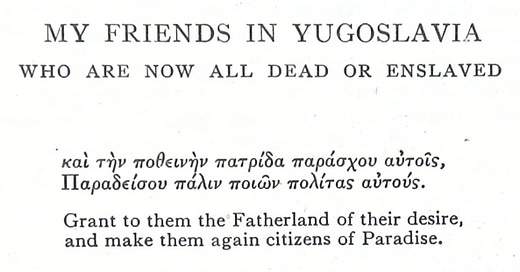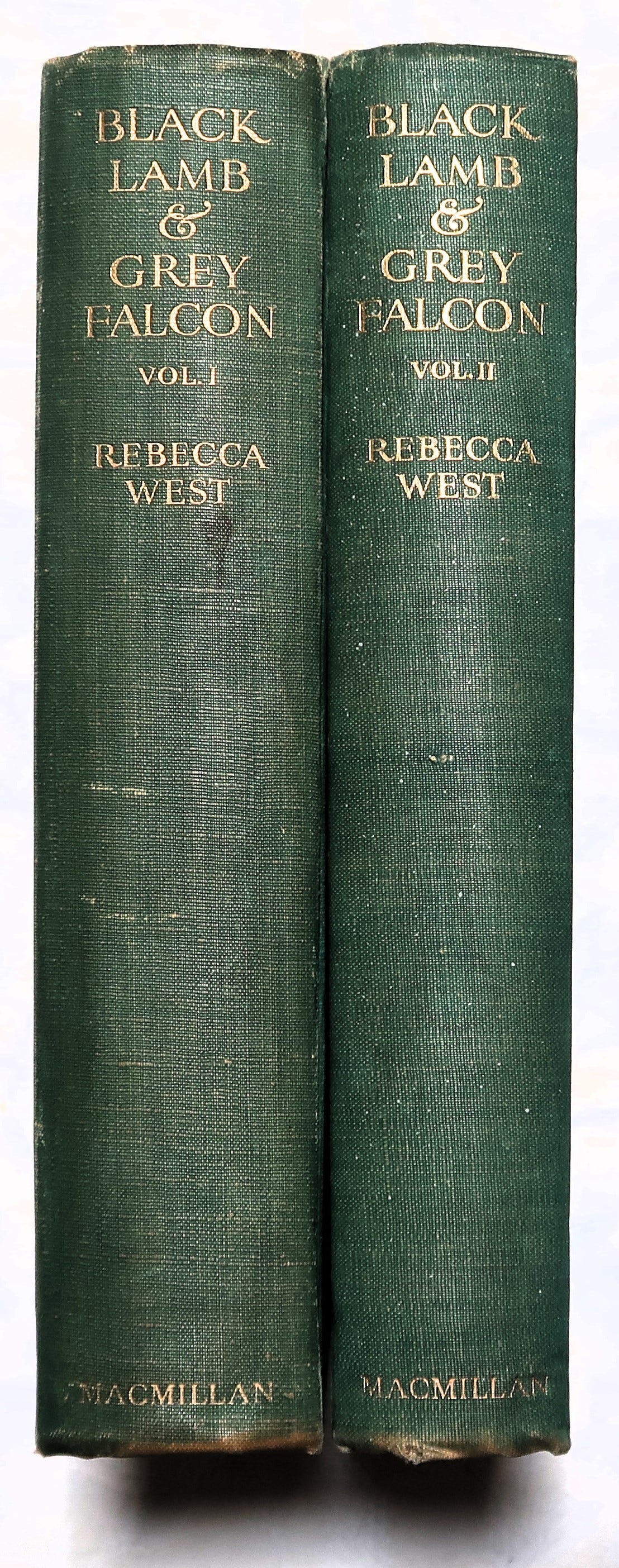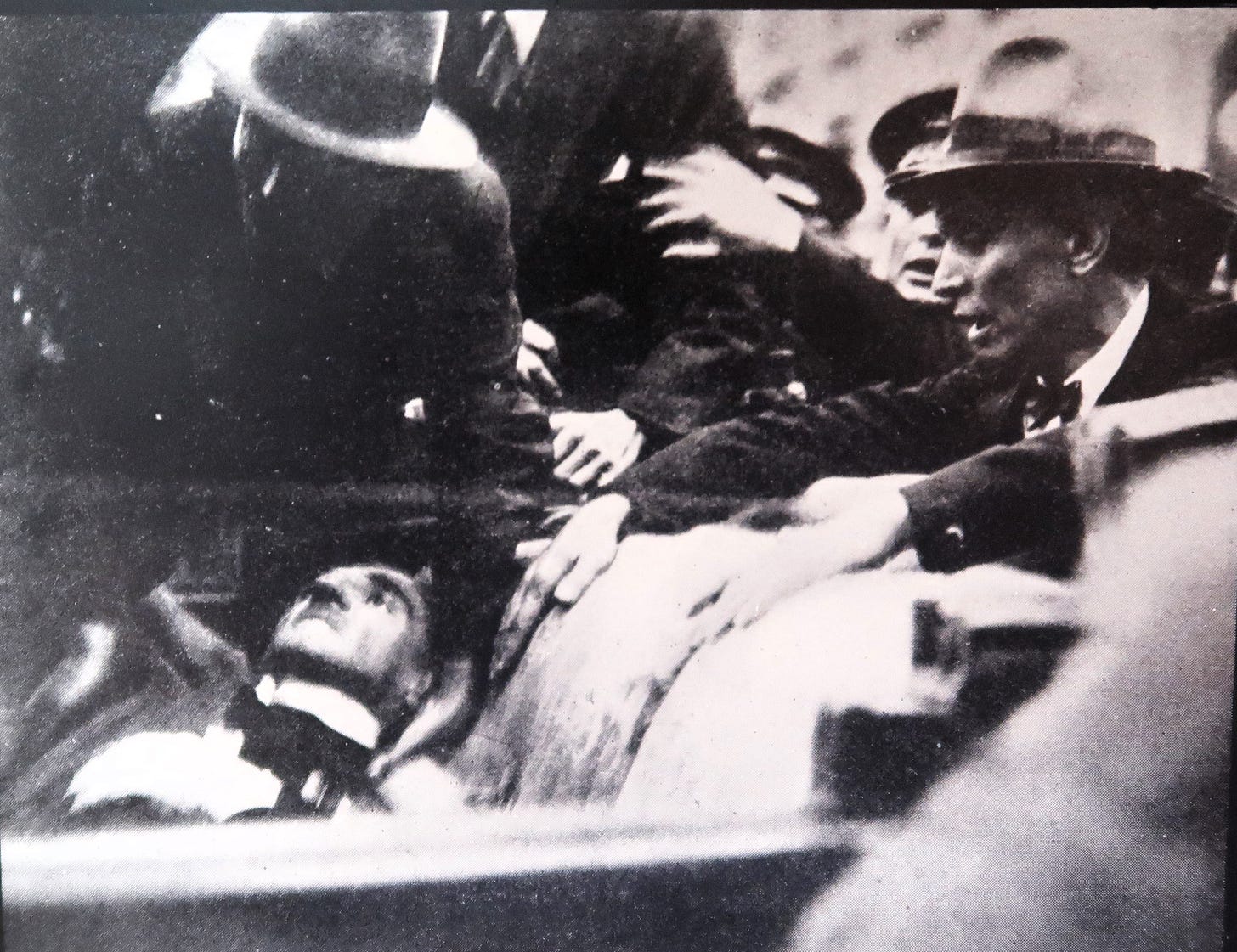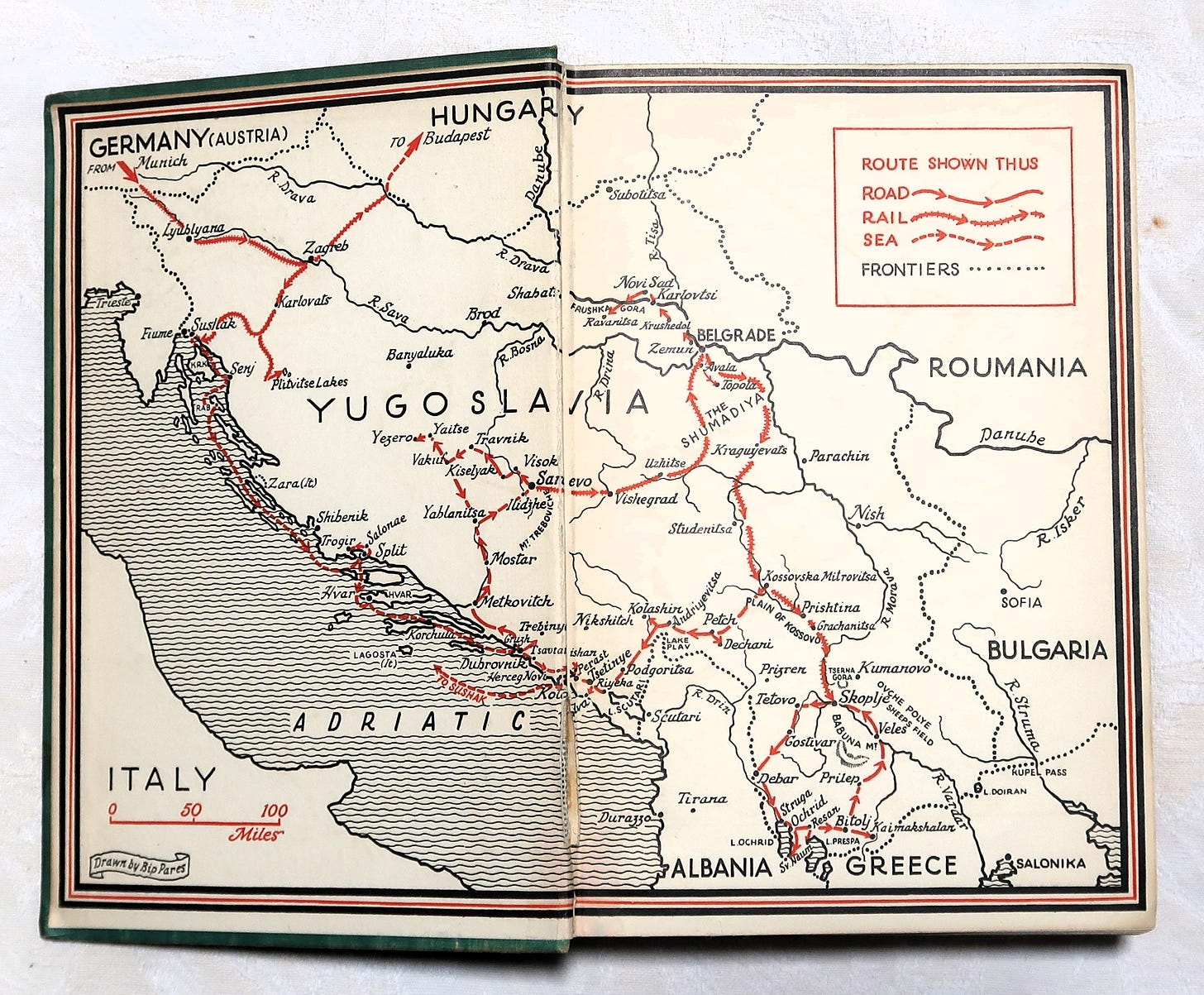"Make them again citizens of Paradise"
A discovery made while reading Rebecca West's Black Lamb and Grey Falcon
Thus does Rebecca West, the pen name of Cecily Isabel Fairfield (1892-1983), dedicate her travelogue of 1937 to Yugoslavia, Black Lamb and Grey Falcon, published in 1942, after the Nazis had invaded on April 6, 1941.
The book has gone through many printings and is still in print, as a Penguin Classic, with a foreward by, of all people, Christopher Hitchens, himself a razor-sharp wit and rhetorician of keen brilliance, but lacking the profundity of nuanced impressionability and, naturally, the female empathy evident in West’s every observation.
This is my copy, a second printing of the first edition, given me by James, my brother.
In return for his kindness, I’ve dedicated this post to a fascinating discovery that only the passage of nearly a century could reveal, for without the technologies developed in the past 25 years, I could never have found it so readily or even at all.
Anyone who has read this book will remember the author’s Prologue in which she sets the stage for the journey itself by disclosing its origins. In 1934, awakening in a nursing home still partly anesthetized after an unspecified surgical operation, listening to the wireless:
…one evening I turned the wrong knob and found music of a kind other than I sought, the music that is above earth, that lives in the thunderclouds and rolls in human ears and sometimes deafens them without betraying the path of its melodic line. I heard the announcer relate how the King of Yugoslavia had been assassinated in the streets of Marseilles that morning. We had passed into another phase of the mystery we are enacting here on earth, and I knew that it might be agonising.
The author, still somewhat affected by the ether,
…imagined [her]self widowed and childless, which was another instance of the archaic outlook of the unconscious, for I know that in the next war we women would have scarcely any need to fear bereavement, since air raids unpreceded by declaration of war would send us and our loved ones to the next world in the breachless unity of scrambled eggs.
This ultimate phrasing with its black humor may possibly allude to Communist propagandist masquerading as journalist (of course, for the New York Times, which has never changed its spots in a century) and Stalin-adorer Walter Duranty’s quote, “To put it brutally, you can't make an omelette without breaking eggs." West was as exceptionally well-read as any literate British writer of the first half of the 20th century when men of letters were truly literate. It is more likely, however, in my opinion, given the depth of her scholarship and the assassination of a royal, that she alluded to François de Charette, a Royalist counter-revolutionary during the French Revolution, who famously said, “On ne saurait faire d’omelette sans casser des œufs.”
I rang for my nurse, and when she came I cried to her, “A most terrible thing has happened. The King of Yugoslavia has been assassinated.” “Oh, dear!” she replied. “Did you know him?” “No,” I said. “Then why,” she asked, “do you think it’s so terrible?”
Her question made me remember that the word “idiot” comes from a Greek root meaning private person. Idiocy is the female defect: intent on their private lives, women follow their fate through a darkness deep as that cast by malformed cells in the brain. It is no worse than the male defect, which is lunacy: they are so obsessed by public affairs that they see the world as by moonlight, which shows the outlines of every object, but not the details indicative of their nature.
I said, “Well, you know, assassinations lead to other things!” “Do they?” she asked. “Do they not!” I sighed, for when I came to look back on it my life had been punctuated by the slaughter of royalties, by the shouting of newsboys who have run down the streets to tell me that someone has used a lethal weapon to turn over a new leaf in the book of history.
Fortunately, for us who very much enjoy exquisite, bold and immediate writing, the conversation in the hospital was not the end of the matter, but rather a commencement. There seems to have been quite the syzygy ordaining the creation of this book.
A few days later my husband told me that he had seen a news film, which had shown with extraordinary detail the actual death of the King of Yugoslavia, and as soon as a I could leave the nursing-home I went and saw it. I had to go to a private projection room, for by that time it had been withdrawn from the ordinary cinemas, and I took the opportunity to have it run over several times, while I peered at it like an old roman reading the tea-leaves in her cup.
I found it in less than ten seconds. That is the wondrous discovery. Here is the exact film:
The famous still from the book which I’ve posted above must have come from this British Pathe film, occuring round about 1:40.
This film proved to be the genesis of West’s journey in 1937 and, thus, the book I am now re-reading after 40 years, when it was impossible to see the film, but only to imagine it.
You can read about the assassination of King Alexander at the Warfare History Network.
There is a somewhat longer American newsreel of the assasination, but Dame Rebecca couldn’t possibly have seen that in London in 1934. However, it provides us with additional perspective.










